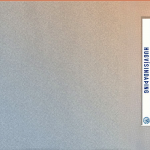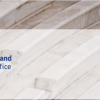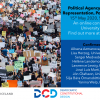
Should the presidency be revised – or not?
According to the Icelandic Constitution, the President holds an important office as the nation’s head of state and its highest official. The president exercises joint legislative power with the parliament, Alþingi – in addition to convening and dissolving it – and appoints, discharges and assigns duties to ministers. The Constitution further describes the president’s role as central in a variety of state activities. In practice, however, the president’s powers are mostly symbolic: authority is delegated to ministers, who are solely responsible for their actions. Nonetheless, there are two exceptions. Firstly, following parliamentary elections, the president grants a chosen political leader the mandate to form a government. Secondly, the president can opt not to sign bills passed by the parliament, in which case they are subjected to the public’s approval, or rejection, in a national referendum.
This has resulted in a long-lasting debate regarding the president’s political power; for example, whether these powers should be strengthened or limited, or kept unchanged.
There is also a question whether the president’s current role is properly reflected in the Constitution, which in many ways seems to sanction political powers that presidents have traditionally not used. As became clear in 2004, 2010 and 2011, the president essentially has the power to break with this tradition if he or she has the inclination, thereby upsetting Iceland’s traditional constitutional practices.
Consequently, the matter of the president’s political role was among the topics up for discussion during the deliberative meeting. Other topics included the voting system in presidential elections and age restrictions for candidates: currently, the president is elected by a simple majority, and candidates must be at least thirty-five years of age to be eligible. Furthermore, the Constitution currently has no provisions limiting the number of terms a president can serve. This is another matter of debate, not least because of the long reign of Iceland’s former president Ólafur Ragnar Grímsson, who remained in office for twenty years.
Topic 1: Must presidents have reached a “respectable” age?
Perceptible changes could be detected in participants’ attitudes towards all aspects of the presidency after the discussion. Before the discussion, the majority of participants (65%) agreed that the age limit for presidential candidates should remain unchanged, while after the discussion this view had become slightly less common (53%). In the beginning, the general attitude was that an age limit is appropriate: presidency, as a position of experience and leadership, requires the knowledge and experience that only age can bring. In other words, a certain maturity is needed for the president to act as a unifying symbol for the nation. Additionally, some participants argued that younger people are more easily influenced than older voters, thereby increasing the danger of populism.
As the discussion went on, different, and more critical, perspectives came to light. Participants wondered if an age limit was undemocratic and simply a part of an old, outdated legacy. Some pointed out that no similar conditions exist for parliamentary candidates and other political positions, and that some current ministers – who wield far more political power than the president – are younger than thirty-five years old. More than a few participants questioned the fact that people can vote at eighteen but not yet run for presidential office. For many participants, experience and knowledge outranked age as a consideration. Although people regarded life experience as an important attribute, an experienced younger person would be just as able to lead the nation as an older one. A common argument was that the voters should to be trusted to evaluate by themselves if a candidate is sufficiently experienced. The discussion showed that for many participants, the age limit proved to be an unexamined tradition rather than a rule of substance.
Topic 2: How should the president be elected?
Perhaps, the most discernible changes can be seen in regard to the voting system. Prior to the discussion, more than half of participants (56%) wanted the voting system – simple majority elections – to remain unchanged. However, after the discussion, the proportion had dropped to 40%. This brings up an interesting contrast to the survey that was conducted during the summer of 2019, where 65% of participants said that they wanted to continue using a simple majority vote. While the tone of the discussion about the current system was generally positive at first, more critical perspectives soon emerged. For example, participants raised the concern that the current system contributed to voters feeling pressured to not “waste” their vote, i.e. to vote strategically for a candidate they consider likely to be elected instead of a candidate they truly preferred. A new voting system could therefore contribute to people voting according to their own convictions.
The percentage of participants who preferred a two-round system stayed roughly the same, or 61% after the discussion. Many participants felt that a second round of voting between the top two candidates would ensure a majority backing and the clear mandate of the elected president. The second round would act as a safety mechanism – especially when candidates are numerous or thin margins separate top contenders – giving voters the chance to do further research on the top candidates. Despite this, several concerns were raised. For example, some participants worried that the voter turnout would drop in the second round, especially for people in rural districts. However, others maintained that a common lack of confidence in the current system contributes to lower turnouts, and that a new system could actually increase participation. Increased cost was another concern, and some participants stressed the importance of evaluating the justifiability of added costs.
Prior to the discussion, less than half of participants (38%) wanted to adopt ranked voting, where voters would rank candidates by preference. After the discussion, a majority (56%) wanted to adopt such a system. Some participants considered this voting system to contribute to voters doing research on the different candidates, instead of choosing just one favorite. Another advantage was that the system would be less costly than a two-round system. The biggest concern raised was that the voting procedure might be too complicated for voters, and the system not sufficiently transparent. As the most popular candidate would not necessarily be elected in a transferable voting system, some participants wondered if the outcome would be accepted by the nation.
Overall, the discussion was lively, with the more vocal participants generally being more in favor of a two-round system rather than a transferable one. The participants approached the issue from many different angles, including the possibility of unpredictable consequences. As the discussion and the surveys show, people were generally interested in changing the voting system, and support for the current system lessened considerably.
Topic 3: Which powers should the president have?
Participants’ attitudes towards the role of the president remained relatively stable. Following the discussion, 77% of participants agreed that the president’s role should be largely ceremonial, though the power to put new laws to a referendum should be kept. A large majority agreed with the statement that the president should represent everybody, and so be “above politics” (86%). Most were in agreement about the importance of the president as a symbol of national solidarity, although some wondered if a presidency was truly necessary. Participants generally considered it important for the president to be apolitical, and a debate arose regarding the contradictions between the Constitution’s provisions and the actual customs and traditions regarding the office. Many participants found the articles on the presidency confusing, contradictory and complicated. Some pointed out that the shaping of the office had – perhaps inappropriately – been in the hands of the presidents themselves through the years, and that the Constitution needed to define the role more clearly.
Participants generally agreed that the president’s political power should not be strengthened, but also not further restricted. The power to put the parliament’s laws to a national referendum was considered an important counterbalance to the government, and a means of strengthening democracy. During the discussion, conflicts emerged between the those who argued that the president should remain an apolitical symbol of unity, and those who found it important to see the president as a defender of the nation’s interests. Concerning the debate surrounding the political, or apolitical, nature of the presidency, one participant pointed out that inevitably, all issues concerning society should be considered political.
Topic 4: Should the number of terms in office be limited?
Following the discussion, the proportion of participants who believed turnover of elected officials to be an important part of democracy increased from 64% to 75%. Moreover, the majority of participants (72%) felt that there should be a limit on the number of terms a president could serve.
After the discussion, women (84%) were more likely than men (62%) to consider term limits to be important. During the discussion, participants frequently agreed that some kind of constraints needed to be put in place. Participants debated what the appropriate term limit would be, for example disagreeing over whether it should be two, three or four terms. Some participants argued that the time it takes for an individual to adjust and gain experience as president needed to be taken into account. At the same time, it would not be advisable for any one person to stay in office for too long.
Quite a few participants disagreed with imposing term limits, arguing that a long presidency contributes to stability and that the decision should ultimately lie with the voters. Others pointed out that the reigning president is generally re-elected, illustrating the need for term limits. Some raised concerns about the added costs that could follow, saying thtt pension payments to multiple ex-presidents could prove costly for the nation.





















